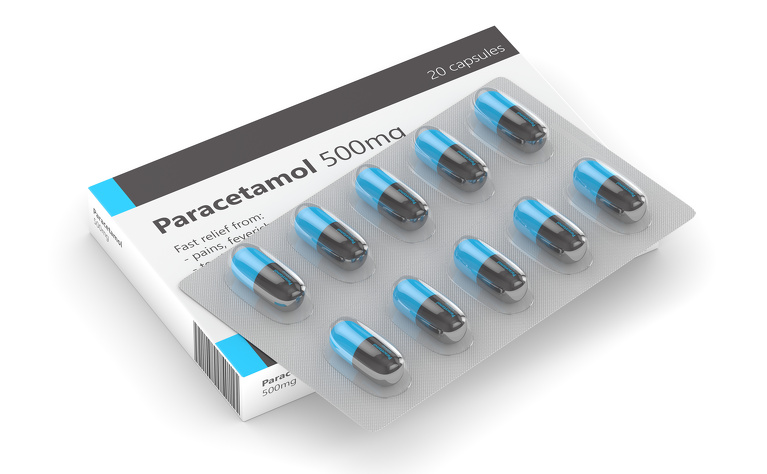Pain and discomfort is common in people with IBD. Find out more about the medications to treat pain in this article...

Unfortunately for people who have Crohn’s disease, ulcerative colitis and other forms of inflammatory bowel disease (IBD), pain and discomfort is often part of the deal. There are lots of disease symptoms and complications that might cause pain, as well as pain resulting from investigations and surgical procedures.
Common sources of pain in Crohn's disease and ulcerative colitis include;
You might have pain that comes on suddenly, usually caused by something specific. Acute pain doesn't continue long-term, and normally resolves when the source of the pain has gone away. Studies have shown that up to 80% of people with IBD will experience acute pain1.
You might have pain that lasts for longer than three months, or persists for longer than would normally be expected. You can have chronic pain without any obvious cause: sometimes your nerves can continue to send pain signals to your brain, even when inflammation or injury is no longer there. Studies have shown that between 30% and 50% of people with IBD will experience chronic pain.
Being in pain can significantly affect your quality of life, especially if it is difficult to control or lasts for a long time. Make sure you tell your IBD team about any pain you are experiencing so they can work with you to find out what is causing it.
If it is a result of your disease activity, you might be asked to increase the dose of the medicine you are taking, or change to a different treatment. In many cases, this can reduce inflammation and symptoms, and so be effective in reducing pain.
However, if you are still struggling with pain and discomfort despite changing your treatment to manage your disease better, or if it is caused by something else, you may need to consider other ways to manage your pain.
There are a range of pain management options that don’t involve medicines that you could explore, such as:
These can be particularly useful to help you feel in control of managing your pain, especially if it is causing anxiety, low mood and behaviour changes (such as coping or avoidance behaviours).
However, it is quite likely at some stage you may require medicine to help you with pain resulting from your Crohn’s disease or ulcerative colitis, even if just for a short period of time.
There are a variety of pain relief medicines available which can help to control pain in Crohn’s disease and ulcerative colitis.
Paracetamol is a commonly used over-the-counter painkiller you can buy without a prescription. It can be used to help with mild to moderate pain, and can also help to control a high temperature. Paracetamol can be used by adults and children and is available in a variety of forms, including:
Paracetamol works by blocking the production of chemicals in your body called prostaglandins, making your body less aware of any pain. It also reduces your temperature by acting on the part of your brain responsible for controlling it.
Paracetamol is often combined with other medicines, including other types of painkillers. Always check any additional medicines are also safe for you to use.
It is generally considered safe to take paracetamol if you have inflammatory bowel disease, however if you need to take paracetamol for longer than three days, or have a new pain, you should speak to your IBD team.
Two paracetamol tablets every four hours, up to four times a day is considered a safe dose for adults. Side effects are uncommon with paracetamol.
You should read the patient information leaflet in your medicine packet to check if paracetamol is suitable for you. Do not take more than the maximum dose in a 24 hour period as an overdose of paracetamol can be very dangerous.

NSAIDs are a group of medicines prescribed to relieve pain, reduce inflammation and bring down a high temperature. Some NSAIDs are also available over-the-counter without a prescription, for short-term use.
Commonly used NSAIDS include:
NSAIDs can be used by adults and in some cases children, and are available in a variety of forms, including:
NSAIDs also affect the production of prostaglandins in your body. Prostaglandins are released in response to illness or injury, and cause pain, swelling and a high temperature.
If you have inflammatory bowel disease, taking NSAIDS for pain relief is not recommended. This is because some studies have suggested they can be harmful to your digestive tract, causing your IBD symptoms to get worse, or trigger a flare2.
Always speak to your IBD team before taking any over-the-counter NSAID medicines. If any other healthcare professional prescribes or recommends pain relief medicines for you, you should tell them you have inflammatory bowel disease.
Opiates are a group of painkillers usually only available on prescription, and are sometimes prescribed to people with IBD to help with severe acute pain or after a surgical procedure. Some opiates, when they are at a low dose and combined with other painkillers such as paracetamol or ibuprofen, are available over-the-counter.
Opiate medicines include:
Opiates work by binding to pain receptors in your brain and nervous system, changing the way your body responds to pain.
Opiates can cause a range of side effects, including;
They can also contribute to further abdominal pain by causing intestinal spasms and constipation. They should only be used for short periods of time, as regular use can lead to dependence and addiction.
Tricyclic antidepressants, such as amitriptyline, can be used in low doses to treat chronic nerve pain (sometimes called neuropathic pain). They can be suitable for use by adults and children who have IBD, and are only available on prescription. They are usually available as tablets or liquid medicine.
It is not fully understood how tricyclic antidepressants work to relieve pain, however it is thought they affect neurotransmitters in your nervous system, reducing pain signals to your brain. They can also help to relax muscles, improve sleep, and can help relieve anxiety or low mood resulting from long term pain.
Your IBD team will check if treatment with tricyclic antidepressants is safe and suitable for you. You will usually start on a low dose, and it might take a few weeks for them to take full effect. It is best to take your dose in the evening before bed, as it can make you feel drowsy.
Common side effects include:
Similar to tricyclic antidepressants, anticonvulsant medicines, such as gabapentin and pregabalin, can also be used in low doses to treat chronic nerve pain (neuropathic pain). They can be suitable for use by adults and children with IBD, and are only available on prescription. They are usually available as capsules, tablets and liquid medicine.
It is believed anticonvulsant medicines interfere with the transmission of pain signals sent from damaged or overly sensitised nerves.
Your IBD team will check if treatment with anticonvulsant medicines is safe and suitable for you.
Anticonvulsant medicines taken in low doses are usually tolerated well and have few side effects. You will usually start on a low dose, which is slowly increased.
Common side effects include:

